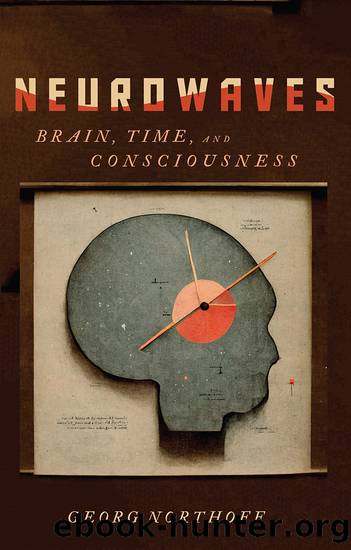Neurowaves by Northoff Georg;

Author:Northoff, Georg;
Language: eng
Format: epub
Publisher: McGill-Queen's University Press
Biological or Natural World of Neuroscience: The Self Is Temporal
Is the self indeed atemporal? Empirical evidence suggests otherwise. The data clearly show that our sense of self is intimately connected with the brainâs inner time, that is, its degree of extension through the slow frequenciesâ phase cycles and timescales. The duration of the brainâs inner time, in turn, translates into the duration of the self âs inner time. The self is thus intrinsically temporal rather than atemporal. This speaks against the assumption of any kind of property, whether physical or mental, underlying the self.
How, then, can the inner time and its duration account for the persistence and sameness of self over time? Philosophers mistakenly assume that an atemporal property or substance accounts for the persistence and sameness of self, and deem any kind of temporality with change and difference to stand opposite to persistence and sameness. While that may be true from a purely logical point of view, it does not hold empirically. We can see that the brainâs inner time is characterized by both persistence/sameness and change/difference: the long cycle duration of the slower frequencies with their long timescales relate to sameness and persistence, while the faster frequencies with their shorter timescales relate to change and difference. Even stronger, the data suggest intimate relationship with interdependence of slower and faster frequencies such that the former structure and organize the latter.
Together, these empirical observations strongly suggest co-occurrence and interdependence of change/difference and persistence/ sameness within the duration of the brainâs inner time. Importantly, such duration of inner time, i.e., its extension, is manifest in both the brainâs neural activity and our sense of self as their common currency. We experience our self as both changing and persistent and therefore as different and the same simultaneously. The empirical data strongly suggest that this can be traced to the degree to which the brainâs inner time extends through its phase cycles and timescales. Hence, my answer to the early philosopher is as follows: though persistence/sameness and change/difference are incompatible in the context of a purely logical world, they are well compatible in the context of a natural world such as that of the biological world of brain and self.
Download
This site does not store any files on its server. We only index and link to content provided by other sites. Please contact the content providers to delete copyright contents if any and email us, we'll remove relevant links or contents immediately.
The remains of the day by Kazuo Ishiguro(8356)
Tools of Titans by Timothy Ferriss(7767)
Giovanni's Room by James Baldwin(6778)
The Black Swan by Nassim Nicholas Taleb(6737)
Inner Engineering: A Yogi's Guide to Joy by Sadhguru(6423)
The Way of Zen by Alan W. Watts(6269)
Asking the Right Questions: A Guide to Critical Thinking by M. Neil Browne & Stuart M. Keeley(5337)
The Power of Now: A Guide to Spiritual Enlightenment by Eckhart Tolle(5310)
The Six Wives Of Henry VIII (WOMEN IN HISTORY) by Fraser Antonia(5211)
Astrophysics for People in a Hurry by Neil DeGrasse Tyson(4988)
12 Rules for Life by Jordan B. Peterson(4154)
Housekeeping by Marilynne Robinson(4041)
The Ethical Slut by Janet W. Hardy(4020)
Skin in the Game by Nassim Nicholas Taleb(3954)
Double Down (Diary of a Wimpy Kid Book 11) by Jeff Kinney(3900)
Ikigai by Héctor García & Francesc Miralles(3852)
The Art of Happiness by The Dalai Lama(3833)
Skin in the Game: Hidden Asymmetries in Daily Life by Nassim Nicholas Taleb(3712)
Walking by Henry David Thoreau(3671)
